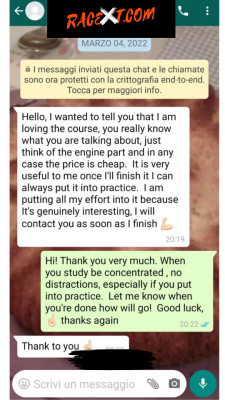Non categorizzato
Cleaning and tuning carburetors
Cleaning and tuning carburetors is an essential skill for any motorcycle enthusiast, helping to improve performance, fuel efficiency, and extend engine life. Learn how to master it today.
Cleaning and Tuning Carburetors: The Ultimate Guide for Motorcycle Enthusiasts
Cleaning and tuning carburetors is not just a maintenance task; it’s a skill that directly impacts your motorcycle’s performance, longevity, and fuel efficiency. Whether you’re a beginner or an experienced rider, understanding how to properly clean and tune your carburetor can save you time, money, and frustration. This guide will walk you through everything you need to know about cleaning and tuning carburetors, from tools to techniques, common issues, and expert tips.
Why Cleaning and Tuning Carburetors Matters
Properly cleaning and tuning carburetors is vital because the carburetor plays a critical role in mixing fuel and air for combustion. A poorly maintained carburetor can lead to:
- Reduced engine performance
- Poor fuel economy
- Increased emissions
- Difficulty starting the engine
By regularly cleaning and tuning carburetors, you ensure your motorcycle runs smoothly and efficiently, whether you’re cruising through city streets or exploring off-road trails.
Tools Needed for Cleaning and Tuning Carburetors
Before you begin, gather the necessary tools to clean and tune your carburetor:
- Screwdrivers (flathead and Phillips)
- A set of wrenches
- Carburetor cleaner spray
- Compressed air can or air compressor
- Cleaning brushes
- Safety gloves
- Protective eyewear
- A small container for soaking parts
These tools will make the cleaning and tuning carburetors process easier and more effective.
Step-by-Step Guide to Cleaning and Tuning Carburetors
1. Remove the Carburetor
Disconnect the carburetor from the engine. Make sure to take photos of the assembly to help you reassemble it later.
2. Disassemble the Carburetor
Carefully disassemble the carburetor, separating the float bowl, jets, and other components. Pay attention to how everything fits together.
3. Clean the Components
Use carburetor cleaner spray to clean all components, including the jets, float bowl, and needle valves. For stubborn debris, use a cleaning brush.
4. Inspect for Damage
While cleaning, inspect each component for cracks, wear, or damage. Replace any faulty parts before reassembling.
5. Reassemble the Carburetor
Reassemble the carburetor using your reference photos. Ensure all parts are correctly aligned and tightened.
6. Tune the Carburetor
Adjust the air-fuel mixture screw and idle speed screw according to your motorcycle’s manual. This step is critical for optimal performance.
Table: Common Carburetor Issues and Solutions
| Issue | Symptoms | Solution |
|---|---|---|
| Dirty jets | Poor acceleration, stalling | Clean jets with carburetor cleaner |
| Faulty float valve | Overflowing fuel | Replace the float valve |
| Improper air-fuel mixture | Engine misfires, rough idle | Adjust the air-fuel mixture screw |
| Clogged air intake | Reduced engine power | Clean or replace the air filter |
| Worn gaskets | Fuel leaks | Replace gaskets |
Frequently Asked Questions (FAQ)
1. How often should I clean and tune my carburetor?
It depends on your riding conditions. If you ride in dusty or off-road environments, you should clean and tune your carburetor every 2,000–3,000 miles. For city riders, once every 5,000 miles should suffice.
2. Can I clean a carburetor without removing it?
Yes, but this method is less effective. To thoroughly clean and tune carburetors, it’s best to remove them from the engine.
3. What are the signs that my carburetor needs tuning?
Signs include rough idling, poor acceleration, difficulty starting, and black smoke from the exhaust.
4. Can cleaning and tuning carburetors improve fuel efficiency?
Absolutely! A well-maintained carburetor ensures proper fuel and air mixing, which reduces fuel consumption and boosts efficiency.
5. Is cleaning and tuning carburetors difficult for beginners?
Not at all. With the right guidance, like in this motorcycle mechanics course, beginners can master the process quickly.
Learning More About Carburetor Maintenance
For those who want to take their motorcycle maintenance skills to the next level, consider enrolling in our Motorcycle Mechanics Course. This course provides a comprehensive understanding of cleaning and tuning carburetors, as well as other essential motorcycle maintenance tasks.
By mastering the art of cleaning and tuning carburetors, you can ensure your motorcycle performs at its peak while saving money on repairs. Whether you’re a seasoned rider or a beginner, this guide is your ultimate resource for maintaining your carburetor.




